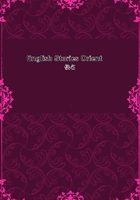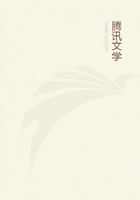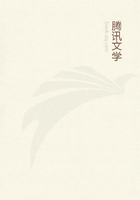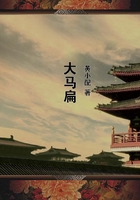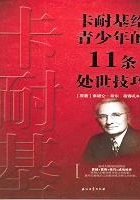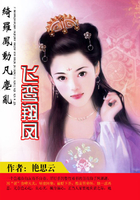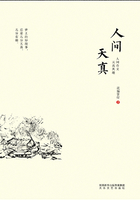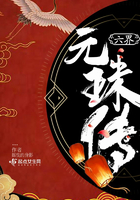It may be claimed as a common element in Matter, Form and the Couplement that they are all substrates.But the mode in which Matter is the substrate of Form is different from that in which Form and the Couplement are substrates of their modifications.
And is it strictly true to say that Matter is the substrate of Form? Form is rather the completion which Matter's nature as pure potentiality demands.
Moreover, Form cannot be said to reside in Matter [as in a substrate].When one thing combines with another to form a unity, the one does not reside in the other; both alike are substrates of a third: thus, Man [the Form] and a man [the Composite] are substrates of their experiences, and are prior to their activities and consequents.
Substance, then, is that from which all other things proceed and to which they owe their existence; it is the centre of passivity and the source of action.
5.These are incontrovertible facts in regard to the pseudo-substance of the Sensible realm: if they apply also in some degree to the True Substance of the Intellectual, the coincidence is, doubtless, to be attributed to analogy and ambiguity of terms.
We are aware that "the first" is so called only in relation to the things which come after it: "first" has no absolute significance;the first of one series is subsequent to the last of another.
"Substrate," similarly, varies in meaning [as applied to the higher and to the lower], while as for passivity its very existence in the Intellectual is questionable; if it does exist there, it is not the passivity of the Sensible.
It follows that the fact of "not being present in a subject [or substrate] is not universally true of Substance, unless presence in a subject be stipulated as not including the case of the part present in the whole or of one thing combining with another to form a distinct unity; a thing will not be present as in a subject in that with which it co-operates in the information of a composite substance.Form, therefore, is not present in Matter as in a subject, nor is Man so present in Socrates, since Man is part of Socrates.
Substance, then, is that which is not present in a subject.But if we adopt the definition "neither present in a subject nor predicated of a subject," we must add to the second "subject" the qualification "distinct," in order that we may not exclude the case of Man predicated of a particular man.When I predicate Man of Socrates, it is as though I affirmed, not that a piece of wood is white, but that whiteness is white; for in asserting that Socrates is a man, Ipredicate Man [the universal] of a particular man, I affirm Man of the manhood in Socrates; I am really saying only that Socrates is Socrates, or that this particular rational animal is an animal.
It may be objected that non-presence in a subject is not peculiar to Substance, inasmuch as the differentia of a substance is no more present in a subject than the substance itself; but this objection results from taking a part of the whole substance, such as "two-footed" in our example, and asserting that this part is not present in a subject: if we take, not "two-footed" which is merely an aspect of Substance, but "two-footedness" by which we signify not Substance but Quality, we shall find that this "two-footedness" is indeed present in a subject.
We may be told that neither Time nor Place is present in a subject.But if the definition of Time as the measure of Motion be regarded as denoting something measured, the "measure" will be present in Motion as in a subject, while Motion will be present in the moved: if, on the contrary, it be supposed to signify a principle of measurement, the "measure" will be present in the measurer.
Place is the limit of the surrounding space, and thus is present in that space.
The truth is, however, that the "Substance" of our enquiry may be apprehended in directly opposite ways: it may be determined by one of the properties we have been discussing, by more than one, by all at once, according as they answer to the notions of Matter, Form and the Couplement.
6.Granted, it may be urged, that these observations upon the nature of Substance are sound, we have not yet arrived at a statement of its essence.Our critic doubtless expects to see this "Sensible": but its essence, its characteristic being, cannot be seen.
Do we infer that fire and water are not Substance? They certainly are not Substance because they are visible.Why, then?
Because they possess Matter? No.Or Form? No.Nor because they involve a Couplement of Matter and Form.Then why are they Substance? By existing.But does not Quantity exist, and Quality? This anomaly is to be explained by an equivocation in the term "existence."What, then, is the meaning of "existence" as applied to fire, earth and the other elements? What is the difference between this existence and existence in the other categories? It is the difference between being simply- that which merely is- and being white.But surely the being qualified by "white" is the same as that having no qualification? It is not the same: the latter is Being in the primary sense, the former is Being only by participation and in a secondary degree.Whiteness added to Being produces a being white;Being added to whiteness produces a white being: thus, whiteness becomes an accident of Being, and Being an accident of whiteness.
The case is not equivalent to predicating white of Socrates and Socrates of white: for Socrates remains the same, though white would appear to have a different meaning in the two propositions, since in predicating Socrates of white we include Socrates in the [whole]
sphere of whiteness, whereas in the proposition "Socrates is white"whiteness is plainly an attribute of Socrates.
"Being is white" implies, similarly, that Being possesses whiteness as an attribute, while in the proposition "whiteness is Being [or, is a being]" Being is regarded as comprising whiteness in its own extension.

